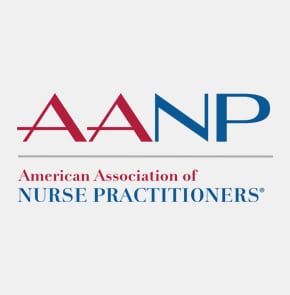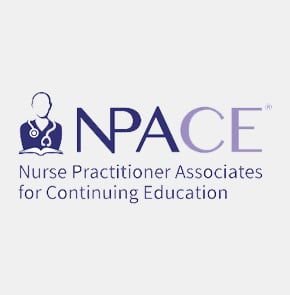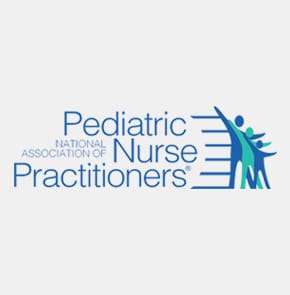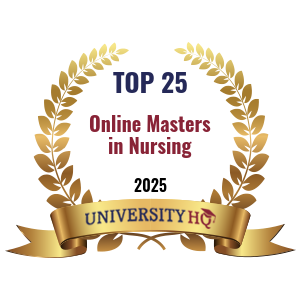By completing an online or traditional Master of Science in Nursing (MSN program) for your nursing education, your career opportunities will expand far beyond what you may already be doing in your nursing career. As a medical manager or in another healthcare management role, you may not be spending much time with patients in a primary care position—but the decisions you make in collaboration with other medical managers will strongly impact patient care. To be eligible to even apply for a spot in a master's degree in nursing program, you have to already hold your Bachelor of Science in Nursing (BSN). You may find an RN to MSN program or BSN to MSN programs, depending on what term local schools use for their nursing degree. Roles that can provide a good jumping off point into healthcare management include advanced practice registered nurses, clinical nurse specialist, registered nurse, nurse practitioner, certified nurse midwife, certified registered nurse anesthetist, nurse educator, etc.
Once you graduate, a master's degrees in nursing will have prepared you to move into one of a variety of managerial positions: Healthcare Administrator, Community Services Manager, Director of Nursing, Department Manager, or Patient Safety Director, Clinical Nurse Leader. Some graduates work as health services managers, manager of programs, nurse managers, quality improvement executives, patient safety directors, staff development directors, patient or nursing educators, or as a professional practice directors. And you may hold nursing titles such as advanced practice registered nurse, nurse practitioner - clinical nurse, psychiatric nurse practitioner, clinical nurse specialist, advanced nursing education specialist, and more. You'll certainly be past applying for entry-level positions with your greater knowledge of the American healthcare system and healthcare organizations within the healthcare industry as a whole, healthcare management, healthcare finance, healthcare risk management, human resource management, and health insurance needs, .

Components of a Successful MSN Career
Nursing is a challenging field - full stop. However, once you earn your Master of Science in Nursing (MSN), you will be faced with even more challenges within the leadership arena. Even if you spend most of your workdays behind a desk rather than in direct patient contact, you still need to make use of skills that you used as a registered nurse (RN) or with your bachelor's degree (BSN).
Critical thinking is even more important now. You’ll have to assess situations rapidly, so you can decide what the best solution is. This happens with primary care for patients and in the administrative realm.
You’ll have to be able to maintain calm, even if you don’t feel it. If something traumatic has just happened, you can’t fall apart. Your staff relies on you keeping a cool head.
Organizational skills are vital for advanced nursing. You have to practice a high level of organization. From managing every minute of your time to knowing where that document is, you need to be on top of every little detail.
Featured Online Programs
Top 25 Best Online Masters in Nursing
Duke University
Score: 86.65
- Graduate Tuition
- In-State: $62,620
- Out-of-State:$62,620
- Net Price: $23,422
- Acceptance Rate: 7%
- Retention Rate: 96%
- Graduation Rate: 96%
- Total Enrollment: 17,112
- Undergrad Students: 6,488
- Graduate Students: 10,624
- Grads Salary: $95,000
- Student-to-faculty: 6:1
Johns Hopkins University
Score: 86.38
- Graduate Tuition
- In-State: $62,840
- Out-of-State:$62,840
- Net Price: $22,844
- Acceptance Rate: 8%
- Retention Rate: 98%
- Graduation Rate: 95%
- Total Enrollment: 30,362
- Undergrad Students: 6,089
- Graduate Students: 24,273
- Grads Salary: $94,000
- Student-to-faculty: 6:1
University of North Carolina at Chapel Hill
Score: 82.59
- Graduate Tuition
- In-State: $10,552
- Out-of-State:$28,844
- Net Price: $11,140
- Acceptance Rate: 19%
- Retention Rate: 97%
- Graduation Rate: 92%
- Total Enrollment: 32,234
- Undergrad Students: 20,681
- Graduate Students: 11,553
- Grads Salary: $77,000
- Student-to-faculty: 15:1
Vanderbilt University
Score: 82.56
- Graduate Tuition
- In-State: $54,744
- Out-of-State:$54,744
- Net Price: $26,689
- Acceptance Rate: 6%
- Retention Rate: 96%
- Graduation Rate: 93%
- Total Enrollment: 13,456
- Undergrad Students: 7,152
- Graduate Students: 6,304
- Grads Salary: $89,000
- Student-to-faculty: 7:1
Bellin College
Score: 79.54
- Graduate Tuition
- In-State: $21,400
- Out-of-State:$21,400
- Net Price: $27,998
- Acceptance Rate: 100%
- Retention Rate: 91%
- Graduation Rate: 74%
- Total Enrollment: 836
- Undergrad Students: 612
- Graduate Students: 224
- Grads Salary: $111,000
- Student-to-faculty: 8:1
University of Southern California
Score: 77.95
- Graduate Tuition
- In-State: $66,640
- Out-of-State:$66,640
- Net Price: $41,496
- Acceptance Rate: 10%
- Retention Rate: 97%
- Graduation Rate: 92%
- Total Enrollment: 47,147
- Undergrad Students: 21,023
- Graduate Students: 26,124
- Grads Salary: $92,000
- Student-to-faculty: 9:1
Georgetown University
Score: 77.68
- Graduate Tuition
- In-State: $58,848
- Out-of-State:$58,848
- Net Price: $37,967
- Acceptance Rate: 13%
- Retention Rate: 97%
- Graduation Rate: 94%
- Total Enrollment: 20,392
- Undergrad Students: 7,968
- Graduate Students: 12,424
- Grads Salary: $87,000
- Student-to-faculty: 11:1
Stony Brook University
Score: 77
- Graduate Tuition
- In-State: $11,310
- Out-of-State:$24,490
- Net Price: $18,601
- Acceptance Rate: 49%
- Retention Rate: 89%
- Graduation Rate: 78%
- Total Enrollment: 25,865
- Undergrad Students: 17,549
- Graduate Students: 8,316
- Grads Salary: $86,000
- Student-to-faculty: 19:1
Clarkson College
Score: 76.67
- Graduate Tuition
- In-State: $12,546
- Out-of-State:$12,546
- Net Price: $13,814
- Acceptance Rate: 64%
- Retention Rate: 77%
- Graduation Rate: 75%
- Total Enrollment: 1,078
- Undergrad Students: 613
- Graduate Students: 465
- Grads Salary: $88,000
- Student-to-faculty: 18:1
Ohio State University
Score: 76.44
- Graduate Tuition
- In-State: $12,515
- Out-of-State:$40,245
- Net Price: $19,575
- Acceptance Rate: 51%
- Retention Rate: 94%
- Graduation Rate: 88%
- Total Enrollment: 60,046
- Undergrad Students: 45,728
- Graduate Students: 14,318
- Grads Salary: $77,000
- Student-to-faculty: 18:1
Rush University
Score: 75.11
- Graduate Tuition
- In-State: $38,013
- Out-of-State:$38,013
- Net Price: N/A
- Acceptance Rate: 14%
- Retention Rate: 96%
- Graduation Rate: 77%
- Total Enrollment: 2,782
- Undergrad Students: 120
- Graduate Students: 2,662
- Grads Salary: $100,000
- Student-to-faculty: 5:1
Texas A&M University-College Station
Score: 75.09
- Graduate Tuition
- In-State: $6,885
- Out-of-State:$19,882
- Net Price: $21,610
- Acceptance Rate: 63%
- Retention Rate: 94%
- Graduation Rate: 84%
- Total Enrollment: 76,633
- Undergrad Students: 59,933
- Graduate Students: 16,700
- Grads Salary: $80,000
- Student-to-faculty: 19:1
University of Pittsburgh-Pittsburgh
Score: 74.12
- Graduate Tuition
- In-State: $25,834
- Out-of-State:$43,804
- Net Price: $24,338
- Acceptance Rate: 50%
- Retention Rate: 92%
- Graduation Rate: 84%
- Total Enrollment: 34,525
- Undergrad Students: 25,171
- Graduate Students: 9,354
- Grads Salary: $78,000
- Student-to-faculty: 13:1
Stanbridge University
Score: 73.86
- Graduate Tuition
- In-State: N/A
- Out-of-State:N/A
- Net Price: $23,800
- Acceptance Rate: 11%
- Retention Rate: 93%
- Graduation Rate: 77%
- Total Enrollment: 2,642
- Undergrad Students: 2,373
- Graduate Students: 269
- Grads Salary: $76,000
- Student-to-faculty: 15:1
University of Central Florida
Score: 73.15
- Graduate Tuition
- In-State: $6,916
- Out-of-State:$25,759
- Net Price: $13,110
- Acceptance Rate: 40%
- Retention Rate: 92%
- Graduation Rate: 75%
- Total Enrollment: 69,233
- Undergrad Students: 59,470
- Graduate Students: 9,763
- Grads Salary: $71,000
- Student-to-faculty: 29:1
Regis College
Score: 72.96
- Graduate Tuition
- In-State: $23,688
- Out-of-State:$23,688
- Net Price: $30,212
- Acceptance Rate: 89%
- Retention Rate: 81%
- Graduation Rate: 69%
- Total Enrollment: 2,842
- Undergrad Students: 1,096
- Graduate Students: 1,746
- Grads Salary: $100,000
- Student-to-faculty: 11:1
University of St. Francis
Score: 72.92
- Graduate Tuition
- In-State: $14,382
- Out-of-State:$14,382
- Net Price: $16,455
- Acceptance Rate: 64%
- Retention Rate: 73%
- Graduation Rate: 65%
- Total Enrollment: 3,185
- Undergrad Students: 1,306
- Graduate Students: 1,879
- Grads Salary: $88,000
- Student-to-faculty: 13:1
California State University-Chico
Score: 71.27
- Graduate Tuition
- In-State: $7,176
- Out-of-State:$16,680
- Net Price: $15,187
- Acceptance Rate: 94%
- Retention Rate: 84%
- Graduation Rate: 64%
- Total Enrollment: 14,523
- Undergrad Students: 13,160
- Graduate Students: 1,363
- Grads Salary: $85,000
- Student-to-faculty: 20:1
Texas A&M International University
Score: 71.1
- Graduate Tuition
- In-State: $3,350
- Out-of-State:$10,712
- Net Price: $3,833
- Acceptance Rate: 46%
- Retention Rate: 74%
- Graduation Rate: 49%
- Total Enrollment: 8,536
- Undergrad Students: 7,004
- Graduate Students: 1,532
- Grads Salary: $80,000
- Student-to-faculty: 21:1
George Mason University
Score: 70.89
- Graduate Tuition
- In-State: $13,726
- Out-of-State:$35,677
- Net Price: $18,900
- Acceptance Rate: 89%
- Retention Rate: 87%
- Graduation Rate: 69%
- Total Enrollment: 39,527
- Undergrad Students: 27,666
- Graduate Students: 11,861
- Grads Salary: $82,000
- Student-to-faculty: 16:1
University of Oklahoma
Score: 70.38
- Graduate Tuition
- In-State: $8,903
- Out-of-State:$25,163
- Net Price: $19,900
- Acceptance Rate: 77%
- Retention Rate: 89%
- Graduation Rate: 75%
- Total Enrollment: 29,145
- Undergrad Students: 22,025
- Graduate Students: 7,120
- Grads Salary: $75,000
- Student-to-faculty: 17:1
University of Missouri-Columbia
Score: 70.08
- Graduate Tuition
- In-State: $12,000
- Out-of-State:$30,000
- Net Price: $20,006
- Acceptance Rate: 77%
- Retention Rate: 91%
- Graduation Rate: 76%
- Total Enrollment: 31,013
- Undergrad Students: 23,613
- Graduate Students: 7,400
- Grads Salary: $73,000
- Student-to-faculty: 17:1
Thomas Jefferson University
Score: 70.04
- Graduate Tuition
- In-State: $23,202
- Out-of-State:$23,202
- Net Price: $29,097
- Acceptance Rate: 86%
- Retention Rate: 82%
- Graduation Rate: 68%
- Total Enrollment: 8,315
- Undergrad Students: 3,731
- Graduate Students: 4,584
- Grads Salary: $91,000
- Student-to-faculty: 13:1
University of Arizona
Score: 69.8
- Graduate Tuition
- In-State: $12,718
- Out-of-State:$32,290
- Net Price: $18,144
- Acceptance Rate: 86%
- Retention Rate: 88%
- Graduation Rate: 66%
- Total Enrollment: 53,001
- Undergrad Students: 41,899
- Graduate Students: 11,102
- Grads Salary: $80,000
- Student-to-faculty: 19:1
George Washington University
Score: 69.77
- Graduate Tuition
- In-State: $35,100
- Out-of-State:$35,100
- Net Price: $45,466
- Acceptance Rate: 44%
- Retention Rate: 92%
- Graduation Rate: 85%
- Total Enrollment: 25,568
- Undergrad Students: 11,387
- Graduate Students: 14,181
- Grads Salary: $85,000
- Student-to-faculty: 12:1
Overview of an Online Master of Science in Nursing (MSN) Degree Program
Typical MSN Degree Requirements
Before nursing students can begin their online programs or more traditional MSN programs, they need to hold their Bachelor of Science in Nursing (BSN). This usually means they will have experience working as a registered nurse, which is why these master's degree programs are sometimes called an RN to MSN program rather than a BSN to MSN program, and they are different from healthcare administration degree programs though graduates may work as health services managers. In addition, you also need to have several prerequisite credits (between 15 and 20) in which you earned a minimum of a B minus.
Once you start your MSN program in earnest, you will have to complete about 70 to 75 credits with passing grades. You should finish in two and a half years (five semesters).
Typical MSN Certifications Needed
Depending on the nursing specialty in which you will be working, you need the certifications for those specialties. Many of the available online certifications include Adult-Gerontology Acute Care Nurse Practitioner certification (AGACNP-BC), Adult-Gerontology Primary Care Nurse Practitioner Certification (AGPCNP-BC), Family Nurse Practitioner (FNP-BC), Adult-Gerontology Clinical Nurse Specialist (AGCNS-BC), Psychiatric-Mental Health Nurse Practitioner (Across the Lifespan) (PMHNP-BC), Adult-Gerontology Acute Care Nurse Practitioner (AGACNP-BC), Adult-Gerontology Clinical Nurse Specialist (AGCNS-BC), and others.
Academic Standards
To be able to graduate with your Master of Science in Nursing (MSN), you need to complete a minimum number of credit hours. This differs from program to program, but in general, expect to complete about 36 credits for your program. Again, your requirements will differ from one university to the next, but the information you are introduced to in each program will be similar.
Overall, you’ll take some core courses, then choose several direct care core courses or electives. Next, you’ll choose a specialty area and take the courses in those areas. If you plan to become a nurse educator, your courses will be focused on that specialty. If your plans are to enter nursing informatics, then your courses will focus on this.
Next, the nursing administration program carries its own graduation requirements. No matter your specialty, you will have to complete a specific number of supervised hours for your practicum course. You may be required to take your practicums consecutively within the same facility.
Find Your Online Nursing (MSN) School
Exam and Experience Needed
 In referring to “experience”, this section refers to prior nursing experience. Even if you don’t have your bachelor’s degree in nursing, as long as you have one in another field, you may qualify for admission.
In referring to “experience”, this section refers to prior nursing experience. Even if you don’t have your bachelor’s degree in nursing, as long as you have one in another field, you may qualify for admission.
If you don’t have a Bachelor of Science in Nursing (BSN), then a bachelor’s degree in a discipline such as engineering, computer science, or education will suffice. You should have your associate degree in nursing (ADN) to fully qualify for admission.
If you are enrolling into an online MSN program, you may not have to take the Graduate Record Examination (GRE). Check with the admissions offices of the universities you are considering. If you will be attending your nursing classes on-campus, then you will have to take an entrance exam. Check with admissions for the details on this.
You’ll have options in your degree program. Beginning with the Master of Science in Nursing, you’ll learn how to apply both organizational and systems leadership principles to clinical settings; integrate scientific findings from genetics, biopsychological areas, quality improvement, public health and organizational sciences. You will also show that you have the ability to work with the steps in evidence-based practice, so you can implement recommended clinical practice guidelines or work on the design or projects within a clinical setting. You’ll also apply research outcomes, so you can solve practice problems in your assignments. You’ll communicate to develop, participate in, and lead inter-professional teams and professional partnerships.
Core courses will include:
- Research for Evidence-Based Practice, I
- Applied Statistics for Evidence-Based Practice
- Health Promotion and Disease Prevention in Culturally Diverse Populations
- Ethics for Advance Practice Nursing
If you will be going into a leadership as a clinical nurse, the following concentrations are required:
- Pathophysiology Across the Life Span
- The Diagnostic Physical Exam Across the Life Span
- Advanced Pharmacology
Master’s Degree with Tuition Cost Range
The rates listed in this university aren’t going to be the same from university to university. Some will be lower, while others will run higher.
An entry-level Master of Science in Nursing (ELMSN) goes through every class in lockstep with the members of their cohort. The pricing shown is cohort pricing. If any student takes a course out of sequence, then higher pricing will kick in.
The total program cost for two years will cost $71,650 for tuition. The costs per semester hour are divided between the MSN portion and the foundational portion.
Foundational portion costs are $730/credit hour; the MSN portion runs $1,050/credit hour.
Cost breakdown by term:
- Summer class: 15 credits $730/credit hour, tuition cost is $10,950.
- Fall classes: 14 credits $730/credit hour, tuition cost is $10,220.
- January term class: 4 credits $730/credit hour, tuition cost is $2,920.
- Spring term classes: 14 credits $730/credit hour, tuition cost is $10,220.
- Summer classes: 8 credits $730/credit hour, tuition cost is $5,840.
- Fall classes: 9 credits $1,050/credit hour, tuition cost is $9,450.
- January classes: 4 credits $1,050/credit hour, tuition cost is $4,200.
- Spring classes: 9 credits, $1,050/credit hour, tuition cost is $9,450.
- Summer classes: 8 credits, $1,050/credit hour, tuition cost is $8,400.
MSN Career Earning Potential by Occupation
You may be questioning whether you should stay in school to get your MSN, or whether you should return to school later for your master’s in nursing. If you are looking at only the money, your answer is simple.
While the higher pay an MSN earns are pretty attractive, you may have other motivations pushing you toward earning your masters. You may have set a goal for yourself that you would enter a managerial role as a nurse—for this, you must have your master’s degree.
Search Colleges Offering Online Nursing (MSN) Programs
MSN Salaries by Occupation
- Nursing Education
You’ll be teaching future nurses how to work with patients in a dynamic health field. You need to stay current with updates and changes in this field so that you can teach your students. Your role is critical so that the U.S. nursing workforce will be able to meet the demands in an increasingly complex medical field. The medical world is changing, so you will have to stay current with these changes as well. You may work as a faculty member in a university department or as a professional staff development nurse educator. - Patient Services Administration
You’ll be working as an administrator in this role. Here, you’ll be focused on the business aspect (finance, technology, business or healthcare management, and program evaluation). You should focus on quality of healthcare delivery, achievement of outcomes, and strategic planning. You should also be highly familiar with the accreditation process and state and federal guidelines. - Clinical Nurse Leadership
This is a fairly new role, developed by the American Association of Colleges of Nursing, along with other healthcare entities. You will be responsible for helping to develop incoming nurses to be leaders within the nursing field. In your role, you will implement patient care, as you help to plan and develop effective healthcare. You also work closely with health professionals and advocate for patients.
Other MSN nursing roles include nursing administrator, nurse midwife, nurse educator, nurse researcher, clinical nurse specialist, community health nurse, family nurse practitioner, psychiatric/mental health nurse practitioner, and adult nurse practitioner.
| Entry-Level | Mid-Level | Late-Career | |
|---|---|---|---|
| Medical and Health Services Managers | $63,900 | $76,000 | $84,500 |
| Nurse Educator | $72,000 | $73,700 | $83,900 |
| Clinical Research Nurse | $65,000 | $72,400 | $75,600 |
| Clinical Nurse Specialist | $82,700 | $91,600 | $97,800 |
| Psychiatric Nurse Practitioner | $100,900 | $112,300 | $115,000 |
| Family Nurse Practitioner | $91,000 | $100,700 | $104,000 |
| Adult Nurse Practitioner | $93,000 | $103,800 | $112,600 |
Important Questions to Ask (FAQ)
How Long Does It Take to Earn an Online MSN degree?
In an online program, you aren’t locked into a cohort program. You’re taking online courses because your personal or professional lives are too busy for you to attend on-campus.
If the courses are uploaded and left available for more than a week or two, then you can take your courses at any time that fits your schedule. This means that, if you’re out of town on business or for a family vacation, then the online course will still be there when you get home.
Some MSN programs upload one course for several weeks at a time. You will be expected to complete it within a specific amount of time after it is uploaded. This will be an entire course and you will need time to read all the material, take the quizzes, answer and submit the questions, and take part in online forum discussions. One university uploads a course once every eight weeks. If you adhere to this kind of schedule, you’ll complete your MSN in two years.
How Much Does an Online MSN Degree Cost?
By semester, one university charges its MSN students $10,614.
This doesn’t include possible fees, which may include technology, transcript, health fee, graduate student activity fee, graduate student services fee, recreation fee, health insurance and clinical lab fee, room and board, and books.
Does the School Have the Major You’re Considering?
You don’t want to choose a school so you can work on your MSN degree, only to find that the university doesn’t have this program. As you are researching possible schools, read through the Graduate Catalog and speak to someone in the admissions office. Ask them if the nursing program you want to enroll in is carried as a major. If it isn’t then you should cross that institution from your list and call any others you may want to attend.
How Many Students Graduate “On Time,” in Four Years?
Less than 50% of university students graduate on time at the four-year mark. The reasons for this are many. A lack of money may force them to stop their classes so they can work and earn more; a personal event may require all of their time and attention; or they may find themselves on academic probation because of poor academic performance (i.e., low grades). You can combat this in several ways: take more credits during the semester, take summer session classes, work only the number of hours needed to pay for your basics; if you can afford it, hold off on working entirely.
What Kind of Accreditation does the Online Program Hold? How is it Regarded in the Field?
 Differing levels of nursing programs receive their accreditations from different agencies. Graduate nursing programs are accredited by the Accreditation Commission for Education in Nursing (ACEN). If you will be working as a graduate nurse in midwifery, your program will be accredited by the Accreditation Commission for Midwifery Education (ACME). Both of these accreditation agencies are highly thought of, since they ensure that graduate nursing programs and their faculty are of the highest quality.
Differing levels of nursing programs receive their accreditations from different agencies. Graduate nursing programs are accredited by the Accreditation Commission for Education in Nursing (ACEN). If you will be working as a graduate nurse in midwifery, your program will be accredited by the Accreditation Commission for Midwifery Education (ACME). Both of these accreditation agencies are highly thought of, since they ensure that graduate nursing programs and their faculty are of the highest quality.
Accreditation isn’t mandatory—post-secondary educational programs choose whether they will be accredited or not. Once it has been accredited, that recognition lasts only for a few years. After that time period expires, the institution and educational program have to renew their accreditation to ensure that their educational offerings are of the highest quality.
Get Matched With Online MSN Colleges
Software, Technology and Skills Needed
You’ll need to have many of the same skills in nursing that graduates of lower-level nursing possess.
These include:
- Strong observational skills. You’ll be observing patients differently now. You’ll use pharmacology and pathophysiology as you assess your patients. If your instructor urges you to share the main focus on the weekly topics you’re working on, they may seek out patients who are dealing with those issues. The line between theory and practice is short and direct in nursing.
- Good research skills. Again, use your current class topics from which to work. If you have any patients who are working on weight loss or preparing for bariatric surgery, for example, you’ll be able to learn from these encounters.
- Technical skills. If you plan to specialize in nursing informatics, go for classes that teach this subject. You’ll begin to develop the knowledge you need to begin working on database management. If you have an affinity for computers and programming, this is a natural choice for you. Some of your classes teach you to analyze computer and information technologies and customize them for nursing work.
MSN Scholarships
-
Geraldine “Polly” Bednash Scholarship
Amount: $5,000 (8 Awards per year)
Deadline: January 31, April 30, July 31, October 31Awarded to provided support to “outstanding” nursing students in the master’s, bachelor, and doctoral programs. Scholarships are in the amount of $5,000; two are awarded to the top applicants four times each year. To qualify, applicants must hold a 3.2 GPA in either their current program or the last school attended. They must be admitted to a program at a university that is a member of the American Association of Colleges of Nursing (AACN) institution.
-
AANP Education Advancement Scholarships
Amount: Up to $2,500
Deadline: March 20This scholarship, which can go up to $2,500, is awarded to current AANP members. If an AANP member is selected, they must maintain their membership in AANP throughout the entire scholarship funding cycle. For additional eligibility, applicants must be formally admitted to a fully accredited MSN program and be taking courses; enrolled in either a WHNP or FNP program and maintain a GPA of 3.5.
-
Nurses Educational Funds Scholarships
Amount: Varies
Deadline: February 1The amount of this award varies, so a specific dollar amount won’t be shown. The Nurses Educational Funds Scholarship program awards scholarships to 19 students who are enrolled either part-time or full-time in an NLNAC or CCNE accredited nursing education program. Eligible students have maintained a GPA of 3.6 continuously through at least 12 credits.
-
Go Red Multicultural Scholarship Fund
Amount: $2,500
Deadline: DecemberThis scholarship, in the amount of $2,500, is presented to minority women who are pursuing their undergraduate or graduate degrees in the healthcare fields. To qualify, applicants must be: female; of Asian/Pacific Islander, African-American, Hispanic or another minority origin. The GPA of winning students must be at least 3.0. Registration for this scholarship opens in April and closes in December of each year.
-
Daughters of the American Revolution Scholarships
Amount: $2,000-$2,500
Deadline: VariesThis award, funded by the Caroline E. Holt Nursing Scholarship, Madeline Picket (Halbert) Cogswell Nursing Scholarship and the Mildred Nutting Nursing Scholarships are all made available through the Daughters of the American Revolution Society. Winning applicants will only receive an award one time.
-
SGNA RN Advancing Education Scholarship
Amount: $1,000-$2,500
Deadline: March 1, June 1, September 1 December 1 (Quarterly)This scholarship is awarded to part-time students, who receive $1,000 and full-time students, who receive $2,500. Applicants must be RNS working in the gastroenterology specialty and pursuing their BSN, MSN or Ph.D. Eligible students are members of SGNA and enrolled in accredited advanced degree program. They must maintain a 3.0 GPA.
Professional MSN Organizations
- AANP
- SNAP
- NPACE
- NAPNAP

AANP
American Association of Nurse Practitioners
Nurse-practitioner students, nurse practitioners, and persons and organizations who are interested in the role of the NP, can find the answers they need at AANP. This organization possesses the tools, information, and resources that people are seeking. AANP works to empower every NP to provide and advance quality healthcare through practice, education, research, advocacy, and leadership. With 92,000 members, AANP is a diverse community of organizations and individuals who want to work together to provide exceptional patient care.
SNAP
Society of Nurses in Advanced Practice
SNAP was created so that members could participate in scientific charitable and educational activities that expand their professional knowledge. SNAP promotes professional growth and support for Advanced Practice Nurses (APNs). This organization sponsors workshops that expand the learning and knowledge of members in the scientific arena. These workshops take place during dinner programs and continuing education courses. SNAP’s goal is to ensure that its advanced practice members will excel in clinical practice. APNs are encouraged by SNAP to take part in their local communities. As a part of its charitable role in communities around the country, SNAP provides charitable support to local organizations through community-based programs (Angel Tree Program, the St. Clare Clinic, Hurricane Katrina Relief, Brother’s Keeper, Catherine McAuley Clinic and local food pantries.)

NPACE
Nurse Practitioner Associates for Continuing Education
NPACE was established in 1980 in Massachusetts by seven nurse practitioners living and working in the New England region. Four of these founding members were from Massachusetts. Several years later, NPACE conference participants and members of other NP groups helped to establish the American Association of Nurse Practitioners, also formed in Massachusetts. NPACE works to improve nurse practitioner practices through relevant, evidence-based continuing education, conferences, and online courses.

NAPNAP
National Association of Pediatric Nurse Practitioners
At 9,000 members strong, NAPNAP is the professional association for pediatric nurse practitioners to join. Other pediatric-focused advanced practice registered nurses (APRNs) are also welcome to join. NAPNAP was established in 1973 to be the only national organization that is focused on improving the quality of health for a youthful population—infants, children and adolescents. NAPNAP works to promote and advance the role of providing healthcare focused on this age group. Pediatric nursing professionals should be proud of the work they do and in the quality of their education. NAPNAP can boast the membership of respected authors, national child healthcare experts, practicing professionals, and distinguished faculty.
Choosing an Accredited College
Accreditation is vital. When a college/university is accredited, you know that every student will receive a high-quality education. And the same goes for accredited nursing programs. While universities are accredited by regional or national accrediting organizations, individual degree programs are accredited by specialized agencies. Faculty and the materials you learn will all be of the highest quality when you enroll in an accredited program.
Nursing students should look for accreditation by the National League for Nursing Accreditation Commission (NLNAC) or the Commission on Collegiate Nursing Education (CCNE). When nursing programs are accredited by either one of these organizations, you know that the entire nursing program has been reviewed in the most minute detail and approved by nursing experts. The education you receive will meet a minimal level of quality established by an expert panel.
Online vs. On-Campus vs. Hybrid
Whether you decide to attend classes on-campus or online, you’ll have advantages and drawbacks in both formats. Online classes offer you the flexibility that on-campus classes don’t. Their on-campus counterparts are held on a strict schedule that you have to adhere to. Taking online classes, you can study at any time that your schedule permits. Just submit assignments, quizzes and tests by the posted due date. On-campus classes still have specific dates for quizzes and tests. You have to show up to the classroom on time, which means living on campus or commuting to campus from an off-campus location.
You may not pay as much tuition for online classes as you would for their on-campus counterparts either. You won’t have to worry about paying for commuting costs or for room and board if you take online classes.
A third option is the “hybrid” or “blended” program. This takes elements of the on-campus and online classes, giving you an entirely different program. You’ll mainly take your classes in an online format. For one or two weekends in the term, you’ll attend a “residence” weekend.
The hybrid-style, or mix of online and on-campus courses, works well for nursing. Laboratory settings are important for learning as many work environments will be lab settings or require familiarity with lab procedures. Students may be able to set the times and courses that they will attend on campus and do the majority of work in the convenient form of online classes.
Frequently Asked Questions
Does the College have Post-Graduate Job Placement Help and Assistance?
As you get closer to graduation, your thoughts turn to resumes, cover letters, job interviews, and job offers. If this isn’t something you’ve done often, you may feel a little lost. Many universities and colleges have a career services and placement services office somewhere on campus. Here you’ll be able to receive the guidance and assistance you need so you’ll be able to reach out, tweak and send resumes, practice interviews, and respond to requests for interviews.
Why You Need to Consider the Overall National Rankings of the University and its Effects on Your Career or Salary
If you attend an unaccredited nursing program, you will not be able to advance your education—accredited bachelor’s or master’s programs will not accept you. Financial aid will also not be approved for you, even if you demonstrate financial need.
Once you graduate, if you attended a school whose nursing program is not accredited, you may receive fewer job offers. The job offers you do get may also have a salary offer that is lower than you expected. When employers request your official transcripts, they do so for a reason—they want to know that the educational program you graduated from was of a high quality. They check the accreditation of the school and your nursing program. If they find that your program wasn’t accredited, you’re likely to get a lower salary offer or be beaten out for the job by prospective employees who have accredited degrees.
College rankings may seem like they are based on an arbitrary collection of categories. However, employers may use these rankings on some level to determine who they hire. They look at a school’s graduation rate, attrition rates, and the success of its previous graduates in order to determine if the education you received was of the best quality. Even so, the best way to decide if a college is the best choice for you is to visit. Find out when tours of the university or college will be offered and sign up for a tour. You can see what the campus is really like and ask questions of real people.
Search All Programs


























